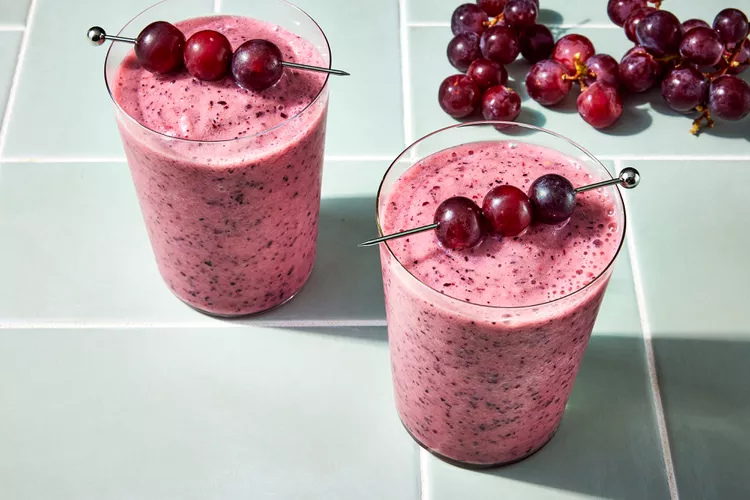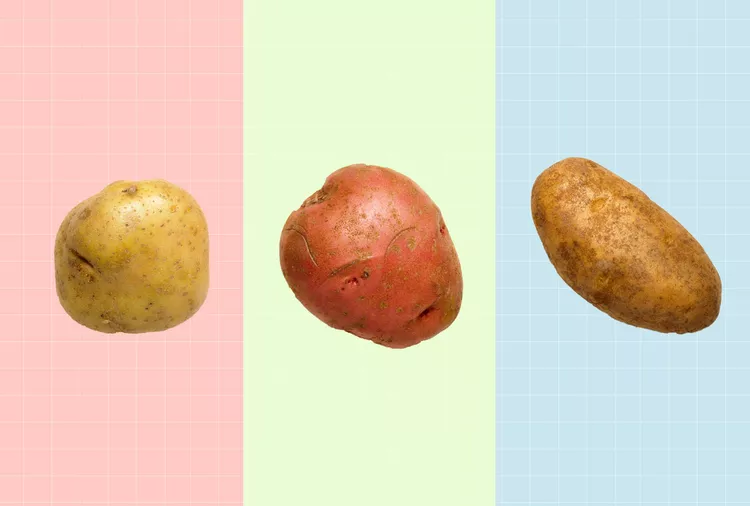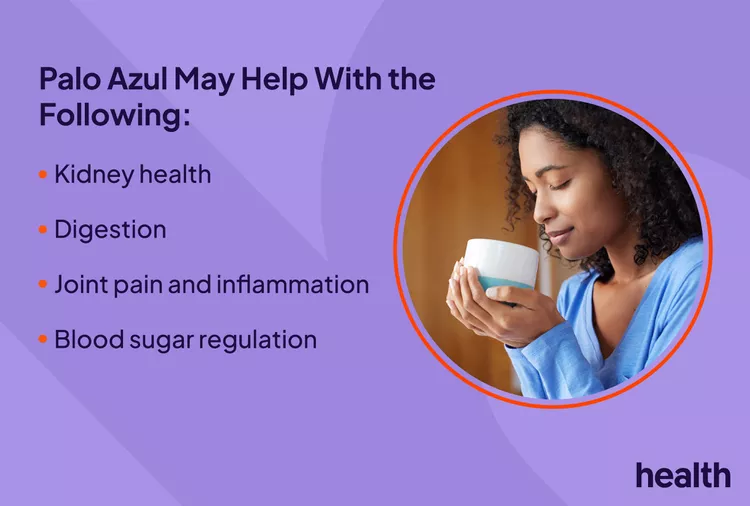Discover the Amazing Benefits of Eating Grapes Every Day for Your Body In a day and age in which continuous glucose monitors (CGMs) are widely available for those with diabetes and without alike to wear and watch, social media is being swept up in a wave of rumors about what foods spike blood sugar levels. Grape have recently fallen under the microscope, with some “health coaches
” claiming that those who have prediabetes or diabetes or want to lose weight should limit or avoid grape in lieu of other fruits. We already tapped dietitians to clear up that myth—yes, you can eat grape if you have diabetes (and you should, if you like them!) Discover the Amazing Benefits of Eating Grape Every Day for Your Body
According to Elizabeth Shaw, M.S., RDN, CPT, a registered dietitian nutritionist, founder of Shaw Simple Swaps, and author of the Air Fryer Cookbook for Dummies, “grape is a type of fruit that can certainly fit in a balanced, healthy diet.“
However, what happens if you consume grape frequently or daily, and how frequently is the sweet spot?
Contents
Health Benefits of Grapes

The Effects of Daily Grape Consumption on Your Body Here’s what might happen if you consume grapes every day, or as a regular part of your diet, in addition to counting as one of your daily fruit portions and providing energy through the previously mentioned calories from carbohydrates The Effects of Daily Grape Consumption on Your Body.
You’ll Increase Your Antioxidant Intake
Antioxidants found in grape of all hues include gut-friendly, circulation-supporting polyphenols and anthocyanins, which have been demonstrated to help prevent heart disease, diabetes, chronic inflammation, and some types of cancer. Research indicates that purple and black Concord grape have a higher total antioxidant capacity than red or green grape, but all grape are powerful antioxidant sources.
No matter what sort you consume, you’ll get a powerful dose of anthocyanins, a type of antioxidant that helps fight free radicals that over time can harm your cells and DNA. Shaw explains that darker purple or black-hued grape have larger levels of this antioxidant.
You Might Improve Your Brain and Heart Health
As previously said, all of those antioxidants aid in the body’s defense against free radicals, which over time can harm your heart and blood vessels.
Consuming grapes is associated with a decreased risk of heart disease and hypertension, according to a December 2021 study published in the journal Food Chemistry X.
According to research, grape are a “functional food” which means that they might be used in medical nutrition therapy. To put it another way, Shaw suggests that grape could be used in a meal prescription to treat hypertension. “It’s encouraging to see food at the forefront of preventive care, even though more research is required.”
According to Ehsani, a small study found that when people with early signs of cognitive decline and memory loss ate 2¼ cups of grapes per day, they experienced improvements in brain function (including attention and memory performance) compared to peers who didn’t eat grape.
Strong, well-flowing blood vessels also ensure that your brain is receiving the proper oxygen supply. However, more in-depth research is required to confirm the results and explore why this might be the case The Effects of Daily Grape Consumption on Your Body.
You’ll Score Some Vitamins and Minerals
If you don’t like kale, collards, spinach, or turnip greens, take note: According to Ehsani, who cites the National Institutes of Health, “grape are a good source of vitamin K, found mostly in dark leafy greens. This vitamin can benefit blood flow and bone health.” Additionally, Ehsani notes that grape contain potassium, which has been shown to help promote heart health and healthy muscle function.
(For comparison, one cup of grape contains roughly the same amount of potassium as two-thirds of a medium banana.) While grapes don’t have as much vitamin C as citrus fruit or any of these six unexpected vitamin C all-stars, they do provide a small amount of vitamin C that supports the immune system.
You May Sleep More Soundly
Melatonin is the body’s major sleep-regulating hormone. Our bodies make it. The body is alerted that nighttime is approaching by the levels, which gradually rise during the day and peak at night.
Additionally, several foods and beverages, including as tart cherries and their juice, eggs, fatty fish, kiwis, almonds, and so on, naturally contain melatonin. and, you guessed it !
Melatonin, which is thought to stay in grape even after they are made into wine, was found in 2006 by scientists to be present in grape skins. A serving of grapes can be a component of a multifaceted plan to improve sleep quality, even though it’s definitely not as easy as “eat grape, snooze well.”
Grapes Nutrition
According to board-certified sports dietitian Roxana Ehsani, M.S., RD, CSSD, of Miami, “grape are a great source of essential carbohydrates, hydration, vitamins, minerals, antioxidants, and polyphenols.
The USDA’s Food Data Central nutrition database states that a 1-cup serving of grape has the following benefits:
- Calories: 104
- Carbohydrates: 27 grams
- Dietary fiber: 1½ grams
- Total sugar: 23 grams
- Protein: 1 gram
- Total fat: 0 grams
- Saturated fat: 0 grams
- Sodium: 3 milligrams
- Potassium: 288 milligrams (8% Daily Value)
- Vitamin C: 5 milligrams (6% DV)
- Vitamin K: 22 micrograms (18% DV)
Carbohydrates, “which is your brain’s primary source of energy,” provide most of the energy in grape, according to Ehsani. “Carbohydrates are great for your muscles and brain.”
Additionally, fresh grape contain roughly 82% water, which will help you increase your daily hydration intake. Along with gaining some healthy vitamins and minerals, each bunch will also get you one step closer to reaching your fiber intake targets, which are something that less than 10% of us achieve.
Are Grapes Safe for Everyone to Eat?
Although they are uncommon, grape allergies do occur. Avoid it at all costs if you have been diagnosed with an allergy or intolerance.
Additionally, it’s a good idea to talk to your healthcare provider if you enjoy eating grape on a regular basis and are taking a blood thinner. They might want to change your prescription since, according to a 2020 study published in Scientific Reports, there is some evidence that the resveratrol in grapes may enhance the activity of these drugs, making it harder for your blood to clot when it’s needed.
Otherwise, “there is no reason to avoid eating them daily if you enjoy them,” Shaw confirms. “With that said, it’s important to eat a variety-filled diet, so consider alternating the color you are choosing to reap the rainbow of benefits.”
For kids under age 5, whole grape can pose a choking risk. If you have a little one at home and are sharing grape with them, use a knife to quarter the grape to help them chew and swallow the fruit with ease, says Shaw (a mom herself).
Tips for Enjoying Grapes
Age, exercise level, gender, and medical history all affect how much energy and how many servings of a certain food type a person needs, according to Shaw.
According to the 2020-2025 Dietary Guidelines for Americans, the average adult should strive for 2 to 2½ cups of fruit daily.
Ehsani advises people to limit their intake to one dish. “It’s totally acceptable to occasionally have several servings on a single day if you’re a grape lover.”
Just keep in mind that it’s always a good idea to shoot for a rainbow of colors each week to diversify your vitamin, mineral and fiber consumption. Try to change things up by including citrus, tropical fruits, berries, melons, apples, bananas, pears and stone fruits, too.
Increase your intake of grapes by:
- Eating them fresh, by the bunch
- Add grape to a cheese or charcuterie board for a sweet complement to the savory elements
- Toss grape into salads such as a fruit salad, Chicken Waldorf Salad or Roasted Grape and Radicchio Salad
- Freeze grape for a poppable, no-sugar-added ice pop
- Throw fresh or frozen grape into your sparkling water, spirit-free drink or glass of wine
- Blend them into a Grape Smoothie
- Roast grape to top nut butter toast or as part of a sheet-pan dinner
- Simmer them down into Grape Chutney to use as a sandwich spread or as a sauce for chicken, pork or steak
The Bottom Line
“Grapes are a nutrient-dense fruit that can be incorporated into a healthy diet, despite their negative reputation as being overly sweet or sugary,” Ehsani explains.
Consuming grapes has been demonstrated to promote heart and brain health, and the vitamins and minerals they contain can strengthen bones, immunity, and other areas. A handful of grapes is also a quick, simple, and inexpensive approach to increase your energy levels because of its high water content and high carbohydrate content.
If you want, you can consume one cup, or one serving, of fruit per day, saving the remaining one to one and a half cups for other nutrient-dense fruits.








